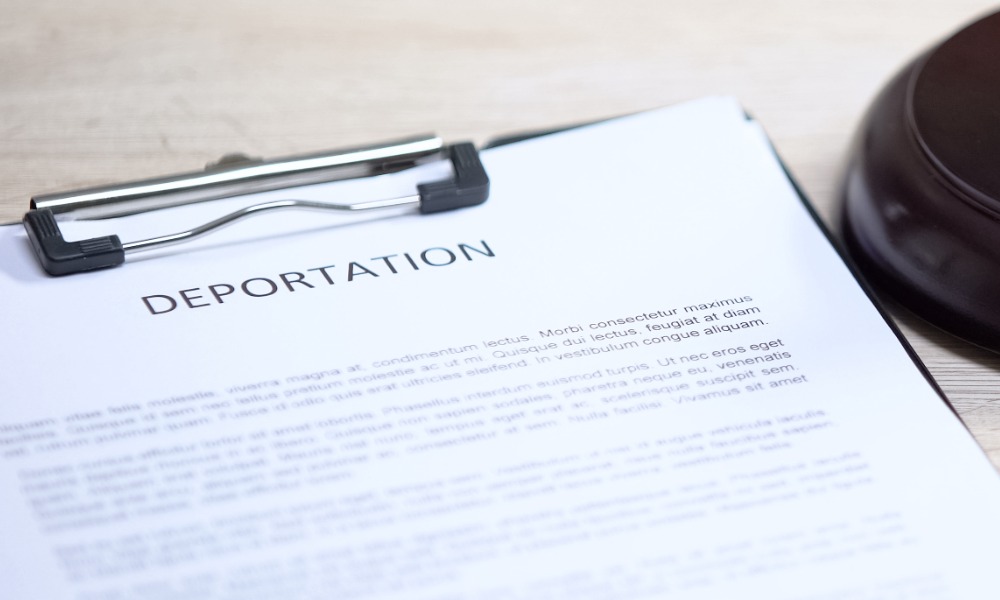KiwiRail could be held liable for workers from China who were underpaid while working for the transport agency, despite their contracts being with their overseas employers.
KiwiRail could be facing a court case if the Rail and Maritime Transport Union (RMTU) has its way.
The union wants a judge to decide whether Chinese workers brought in to remove asbestos from KiwiRail locomotives were covered by New Zealand’s employment legislations.
According to 3 News, 27 workers were paid as little as $3 an hour as their Chinese employers honoured their warranty to remove dangerous material from their vehicles.
However, an investigation by the Ministry of Business, Innovation and Enterprise (MBIE) that lasted eight months was unable to secure proof as the Chinese companies in question refused to provide pay details.
The RMTU has reportedly filed proceedings with the Employment Relations Authority, with the union’s general secretary Wayne Butson claiming that the government had “refused to seek a clear answer on the status of the Chinese engineers”.
“We are also seeking clarification on whether KiwiRail has breached our collective employment agreement with them,” he said.
The MBIE’s investigation began last year after Labour MP Trevor Mallard alleged that the Chinese workers had been underpaid, living in cramped conditions and had to be fed by KiwiRail employees.
However, the ministry questioned whether New Zealand law was applicable because the employment contracts were Chinese, concluding that it was “more than likely minimum standards law would not apply”.
HRM spoke to Catherine Stewart, convenor of the ADLSI Employment Law Committee, about the case.
“Without knowing the facts and what the contracts or work visas say it is difficult to give an in-depth analysis,” Stewart told HRM. “However, generally speaking the issue of which jurisdiction applies to employment agreements is a complex one.”
Stewart explained that there is effectively a two-step process:
1. Assessing the proper law of the contract, such as what the contract says about jurisdiction
2. Assessing the ‘convenient forum’ or the place which has most connection with the employment agreement.
“If there is a clause in the contracts that states they are governed by Chinese law, this is not necessarily the end of the matter,” Stewart continued. “The convenient forum would take several aspects of the employment relationship into account, including where the work is carried out and where the employees are residents. Courts are increasingly recognising that employment disputes should be resolved in the jurisdiction in which the work is carried out.”
Consequently, the ERA in this case may need to determine as a preliminary issue whether they even have the jurisdiction to hear the case.
“The Employment Relations Act makes it clear that you can’t contract out of New Zealand employment law,” Stewart told HRM. “The issue is around whether the contracts are subject to the New Zealand jurisdiction or not.
“If the contracts are governed by Chinese law, the Chinese employers might not need to succumb to the request to provide records on the grounds that they are not subject to New Zealand laws.”
The union wants a judge to decide whether Chinese workers brought in to remove asbestos from KiwiRail locomotives were covered by New Zealand’s employment legislations.
According to 3 News, 27 workers were paid as little as $3 an hour as their Chinese employers honoured their warranty to remove dangerous material from their vehicles.
However, an investigation by the Ministry of Business, Innovation and Enterprise (MBIE) that lasted eight months was unable to secure proof as the Chinese companies in question refused to provide pay details.
The RMTU has reportedly filed proceedings with the Employment Relations Authority, with the union’s general secretary Wayne Butson claiming that the government had “refused to seek a clear answer on the status of the Chinese engineers”.
“We are also seeking clarification on whether KiwiRail has breached our collective employment agreement with them,” he said.
The MBIE’s investigation began last year after Labour MP Trevor Mallard alleged that the Chinese workers had been underpaid, living in cramped conditions and had to be fed by KiwiRail employees.
However, the ministry questioned whether New Zealand law was applicable because the employment contracts were Chinese, concluding that it was “more than likely minimum standards law would not apply”.
HRM spoke to Catherine Stewart, convenor of the ADLSI Employment Law Committee, about the case.
“Without knowing the facts and what the contracts or work visas say it is difficult to give an in-depth analysis,” Stewart told HRM. “However, generally speaking the issue of which jurisdiction applies to employment agreements is a complex one.”
Stewart explained that there is effectively a two-step process:
1. Assessing the proper law of the contract, such as what the contract says about jurisdiction
2. Assessing the ‘convenient forum’ or the place which has most connection with the employment agreement.
“If there is a clause in the contracts that states they are governed by Chinese law, this is not necessarily the end of the matter,” Stewart continued. “The convenient forum would take several aspects of the employment relationship into account, including where the work is carried out and where the employees are residents. Courts are increasingly recognising that employment disputes should be resolved in the jurisdiction in which the work is carried out.”
Consequently, the ERA in this case may need to determine as a preliminary issue whether they even have the jurisdiction to hear the case.
“The Employment Relations Act makes it clear that you can’t contract out of New Zealand employment law,” Stewart told HRM. “The issue is around whether the contracts are subject to the New Zealand jurisdiction or not.
“If the contracts are governed by Chinese law, the Chinese employers might not need to succumb to the request to provide records on the grounds that they are not subject to New Zealand laws.”





